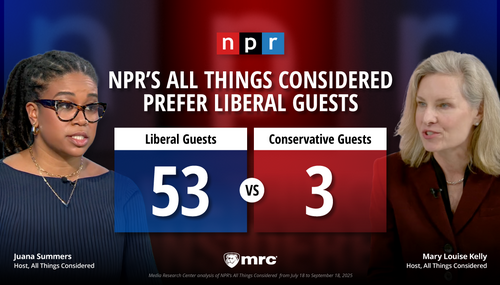An August 6 opinion column at the Politico labeled co-authors Jared Bernstein and Paul Van de Water as "senior fellows at the Center on Budget and Policy Priorities." CBPP, that oxymoron known as a "leftist think tank," went unlabeled. The Politico also must have thought that Bernstein's background as the Chief Economist and Economic Adviser to Vice President Joseph Biden from 2009 to 2011 was irrelevant.
That's okay. Any reader could tell from the piece's headline and content that it was a shameless, reality-avoiding propaganda piece (bolds and numbered tags are mine):
Obamacare isn't destroying jobs [1]
... many of the jobs added in recent months have been part-time, and this has led critics of Obamacare to argue that the implementation of health-care reform is the culprit. Because the legislation (officially the Affordable Care Act, or ACA) requires employers with at least 50 full-time workers to offer them health coverage or pay a penalty, the bill’s detractors claim that it creates a disincentive to hire full-timers and that you can already see the shift to part-time work in the data.
Recent data provide scant evidence that health reform is causing a significant shift toward part-time work. [2]
The share of part-time jobs rose sharply during the recession, as it always does — employers always cut workers’ hours in downturns. Here’s the question: Has this share continued to grow as we approach the start of the ACA’s employer mandate, which was recently pushed back a year to 2015?
The answer is no. Part-time workers represent 19.0 percent of total employment — below the post-recession peak of 20.0 percent and exactly the same as a year ago. [2]
A more rigorous test, shown in the chart below, examines the recent trend in the share of involuntary part-timers — workers who’d rather have full-time jobs but can’t find them. If the ACA’s employer mandate were distorting hiring practices in the way critics claim, we’d expect the share of involuntary part-timers to be growing. Instead, it is down about one percentage point off of its peak. [3]
The fact is, it’s too early to know how health reform will ultimately affect the amount of part-time work. [4] But there’s every reason to expect the impact will be small.
The pair's message is: Don't believe your lyin' eyes, those lyin' anecdotes, or those lyin' numbers. Believe us instead. Sorry, guys, I don't believe you. Let's see why.
Notes:
[1] -- The headline seems a bit unrelated to the content, which is almost entirely about whether the increase (yes, there's been an increase) in part-time work can be tied to Obamacare. But since the headline is what it is, let's duly note that the likelihood of Obamacare followed by the imminence of Obamacare was a major factor first in destroying full-time jobs and then in holding back their reappearance:
As soon as it became obvious that Obama was the presidential frontrunner in 2008 and that he would have a rubber-stamp Congress for two years, full-time job losses accelerated significantly, because enough businesses to matter figured out that a new Obama administration's policies, especially its signature goal of enacting statist health care, would be hostile to their interests. The hemorrhaging continued after his election, after his inauguration, and after his "stimulus" package, all the way until February 2010. By that time, over 11 million full-time jobs had disappeared.
Then Obamacare passed in March 2010. Though some post-trough full-time hiring ensued, most businesses learned what Obamacare's definition of a full-time employee would be — an average of 30 or more hours per week — and clearly decided that sticking with part-timers as much as possible was the way to go.
49 months after the official end of the recession in June 2009, there are still almost 5.8 million fewer full-time employees than there were when employment peaked in November 2007. But the number of part-time workers is up by almost 3.5 million since that same peak. Bernstein and Van de Water want us to believe that Obamacare has nothing to do with any of this. Horse manure.
[2] (tagged twice) -- Their attempt to beguile readers by noting small changes in the full-time/part-time mix in the past year is nowhere near as relevant as looking at how things have changed since peak employment before the recession. Then, the full-time/part-time mix was 83.1% to 16.9%. As of July 2013, it was 80.4% to 19.6%. The fact that today's mix is about the same as it was when Obamacare passed only shows that employers figured out way ahead of time that reducing the number of full-timers on their payroll was a necessary defensive strategy. Since then, they've been trying to avoid hiring full-timers, and have doubled down on that avoidance during the first seven months of this year:
[3] -- I don't buy the importance the progressive pair places on self-reported reasons for part-time work. I would suggest that many workers are resigned to the idea that all they can get is part-time work, and don't volunteer that they would prefer full-time work that isn't out there anyway. It's also possible that many workers are toiling part-time as contract workers so as to not disrupt the flow of food stamp and/or unemployment benefits.
[4] -- Look guys, even the Associated Press has given up trying to pretend that there hasn't already been a fundamental, unanticipated, and significant shift to part-time work. The AP has even acknowledged that Obamacare is a likely factor.
In other words, guys, you're fooling no one but yourselves. No wonder you ended up having to place your piece in the pathetic Obama administration house organ known as the Politico. Who else would have accepted it?
Cross-posted at BizzyBlog.com.





